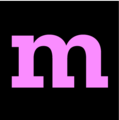Rapid Prototyping, Arduino, and DIY Culture
A spotlight on Maker Learning Curriculum for Rapid Prototyping, a 2018 Global Sprint project
Manasvi M Lalwani (@manasvilalwani) works as a UX and Data Visualization Designer at Axis Group. As a UX Designer, prototyping and testing are at the core of her day-to-day work and she was selected to join the current round of Mozilla Open Leaders with her project Maker Learning Curriculum for Rapid Prototyping.
I interviewed Manasvi to learn more about Maker Learning Curriculum for Rapid Prototyping and how you can help at the Mozilla’s Global Sprint 2018.
What is Maker Learning Curriculum for Rapid Prototyping?
This project aims to capture the curriculum for a maker-oriented course offered at Georgia Tech– CS 6452, also known as Prototyping Interactive Systems, which provides basic technical efficacy to PhD students who came from a variety of backgrounds. The syllabus for this curriculum drew heavily on the concepts and spirit of the DIY (do-it-yourself) culture and could be seen as a maker-oriented approach to prototyping. It was developed by the following pioneering team at Georgia Tech —
- Gregory Abowd
- Aman Parnami
- Elizabeth DiSalvo
- Zane Cochran
This class was made possible by a NSF grant NSF DUE 1431984, titled,’Designing and Studying Maker Oriented Learning to Transform Advanced Computer Science’.
Why did you start Maker Learning Curriculum for Rapid Prototyping?
In Fall of 2014, I took the course Prototyping Interactive Systems with Dr. Abowd in the instructor’s capacity and Aman Parnami (now Dr. Parnami) as his Teaching Assistant(TA). I came from a software background with an engineering degree in Information Technology and had sworn off any hardware engineering during my four years as an undergraduate, deeming it esoteric and outside of my interest and understanding.
However, this class changed my perspective in many ways by making hardware programmable and accessible. My very first project for this class was a prototype of an interactive lamp that pulled weather information using web API’s and displayed it to the user. I would not say that it made me an expert in hardware prototyping but it helped me overcome a huge mental-block that hardware was not for me to tinker with.
It was also probably my very first class that encouraged learning from open-source resources. The hardware platform we used, the Arduino UNO, has a huge maker community around it that shares projects, publishes libraries and encourages a culture of peer learning.
What challenges have you faced working on this project?
When I first started documenting the curriculum I was still a graduate student at Georgia Tech pursuing this as my Master’s Project. While there, I took copious notes describing the activities we did in class. I think the biggest challenge for me has been making those notes discoverable and usable which was my main motivation to participate in Mozilla’s Open Leadership Training. I would also say that it takes no small amount of courage to make your project open and expose yourself to both good and feedback from people and so just putting myself out there is an ongoing challenge.
What kind of skills do I need to help you?
Right now I am really going for some low-hanging fruit and quick wins so there are plenty of ways to help. I am looking for people to help transfer content from Google Docs to GitHub, to proofread content, to help design activity sheets and critique the content and information architecture. Here is a list of issues that I think users can jump in on very easily-
- Help compile/curate a list of teaching materials that can be used as reference materials
E.g. Explaining voltage, current and resistance or using analogies to explain the flow of electricity - Design an open template for activity sheets that can be used in a digital/physical form
I did a sample design in keynote but I’d like to move to a more accessible platform so others can edit the content as they please. - Revise Class Philosophy
I recently had two collaborators use these during their workshop with teenage kids. They found that there was a lot of competition between students and so perhaps we could emphasize the collaborative aspect more at the outset in this section. In fact, one could even have a code of conduct around participating in a maker learning workshop.
How can others join your project at #mozsprint 2018?
I plan to attend the Global Sprint in person thanks to site hosts Trust for Public Land NYC and I look forward to meeting both in person and remote collaborators. I have posted a number of issues that I need help with on my GitHub which is a good way for people to identify areas they can help with. Also if the issues are unclear participants can reach out to me using comments/issues on Github or using Gitter.im and I will be happy to work with them to see how they can help.
What meme or gif best represents your project?
Clement and I collaborated on this project where he played the role of lead designer.
Join us wherever you are May 10–11 at Mozilla’s Global Sprint to work on many amazing open projects! Join a diverse network of scientists, educators, artists, engineers and others in person and online to hack and build projects for a health Internet. Register today
